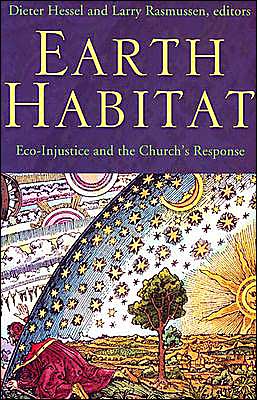

 |

|

The average rating for Earth Habitat based on 2 reviews is 4.5 stars.
Review # 1 was written on 2013-09-05 00:00:00 Keegan Brosseau Keegan BrosseauPages 185-216 talk about the "Earth Charter" which describes guidelines and steps toward creating a community based ministry/education program. This is a great one to tie in with my wisdom web project. Highly recommend this book to any of my followers. Great reference book! |
Review # 2 was written on 2011-04-02 00:00:00 Ricky McCray Ricky McCrayI'm not sure what exactly I expected from this little book. Certainly, I expected to see Malthus's oft cited argument concerning the rate of food production vs. that of population increase (but I wondered if an entire book, however brief, could be filled on that topic). I just as certainly did not expect to meet such a charming writer and incisive thinker. But why has this book stood the test of time? Doubtless, Malthus was wrong about every specific prediction he ventured to make. He did not foresee the widespread use of contraceptives, nor the dazzling improvements in farming technology that would appear in the years to come. I wonder what Malthus would say if you told him that, in the future, less than 2% of the population of the United States would be farmers, and that the population of the world would exceed 7 billion. Probably nothing, he would just laugh at you. So, he's no Nostradamus. But then why has Malthus been brought up in every class on the environment that I have ever taken? This must be because, although Malthus was gloriously (and thankfully) wrong in the specifics, the general problem that he elucidates here is an important one that somehow eluded the attention of every major thinker before him. As the human species continues to multiply at an ever-increasing rate, the ghost of Malthus will continue to haunt us. I have heard it said that Malthus was an enemy of the poor'a lassez-faire capitalist that didn't want welfare states to impinge on the free market. Yes, he was opposed to the Poor Laws in England; but not because he cared little for the well-being of the poor. Malthus genuinely, and for good reason, believed that simply giving money to the poor without increasing the food supply wasn't likely to make their conditions any better. In point of fact, the central concern of this book is to improve the lot of the greatest possible number of people. True, for reasons he lays forth, Malthus is not very optimistic about this prospect. The tension he identifies between food supplies and population increase lead him to conclude that some poverty and suffering is inevitable, and that a perfect utopia is an idle dream. But don't mistake this realistic view of things for gloating about the destitution of the masses. Surely, if he thought that suffering could be entirely extirpated, he would throw all his weight behind that solution. Population explosion will likely be the major issue of our time. If the world is to be improved, it does no good to play around with utopian dreams where the streets are paved with gold and everyone eats candy without gaining weight or getting cavities. The solution will require a hard-headed, realistic analysis of the problem, our identifying what we can reasonably expect to work based on what has worked in the past, and our working with what is currently possible given the political situation. And when we look back at how much has already been done, we can thank Malthus for giving us a head start. |
CAN'T FIND WHAT YOU'RE LOOKING FOR? CLICK HERE!!!